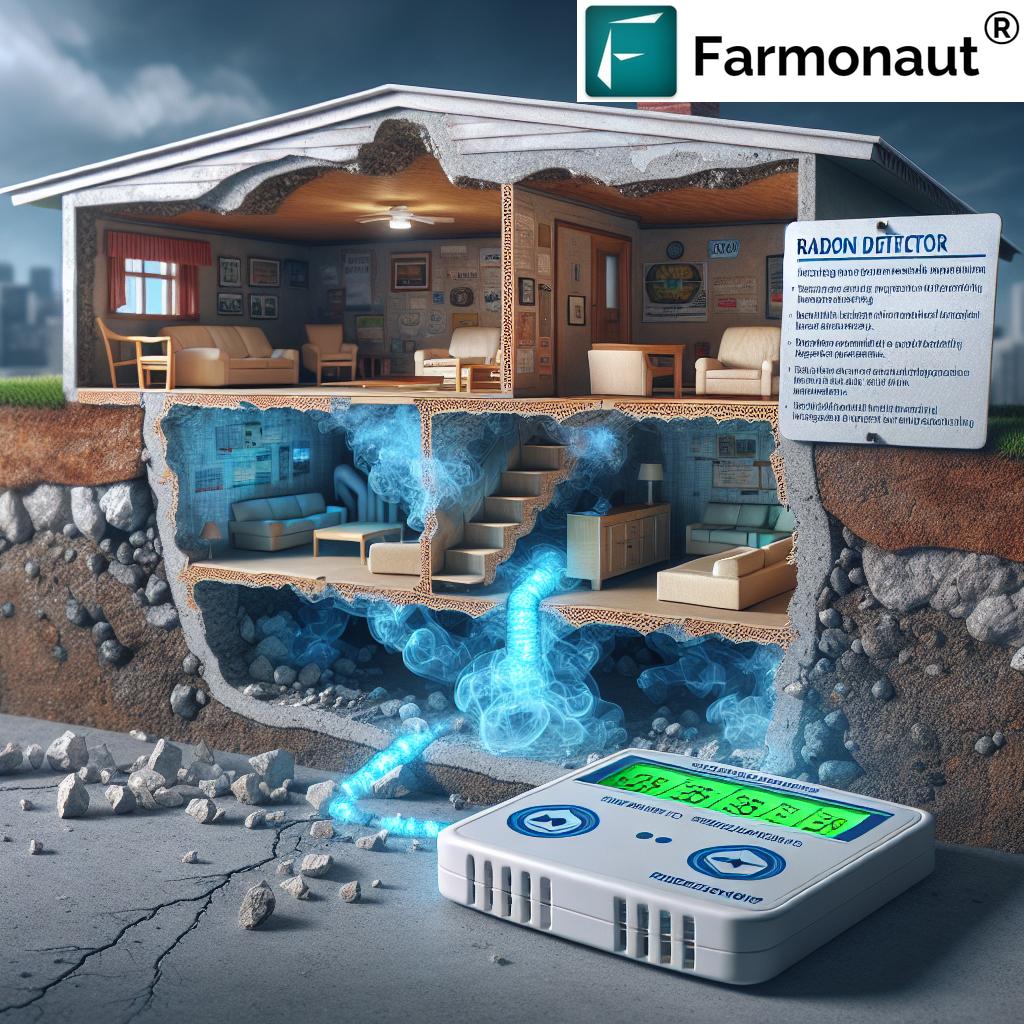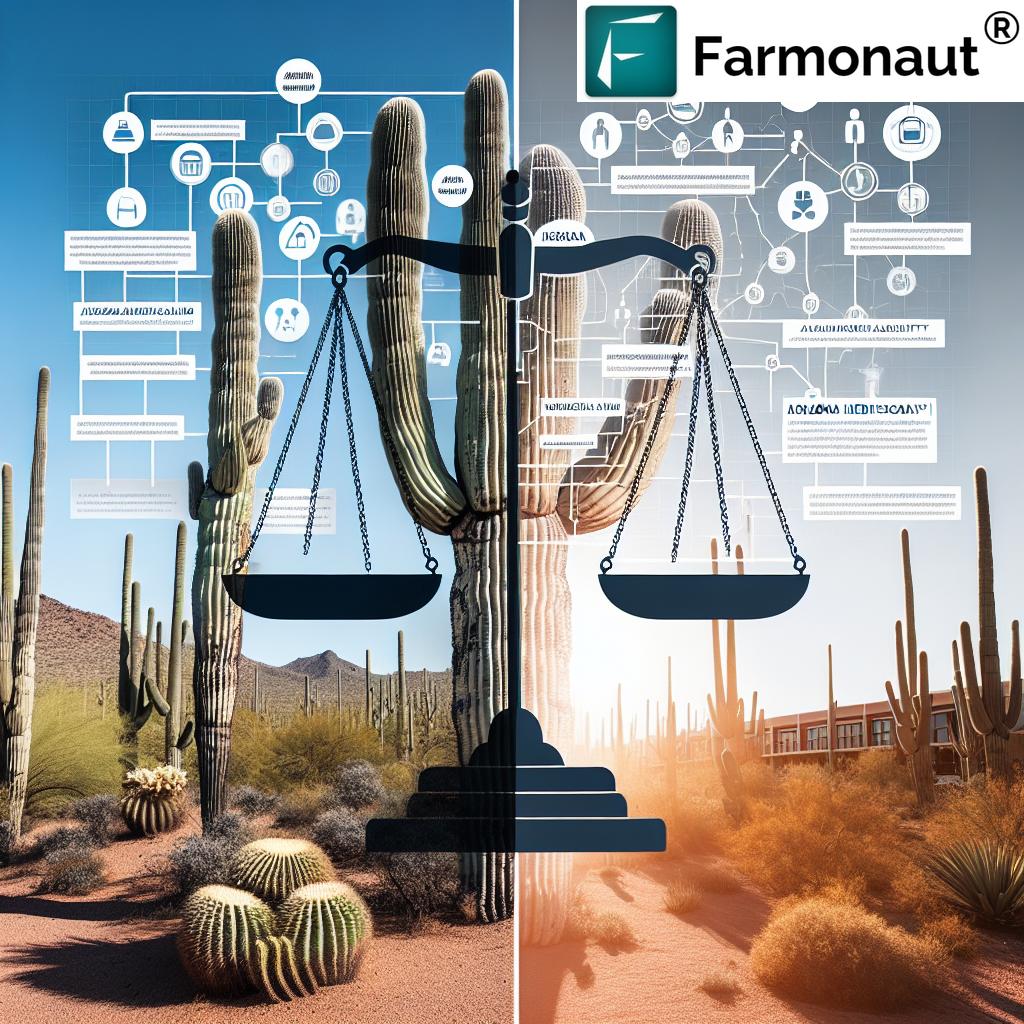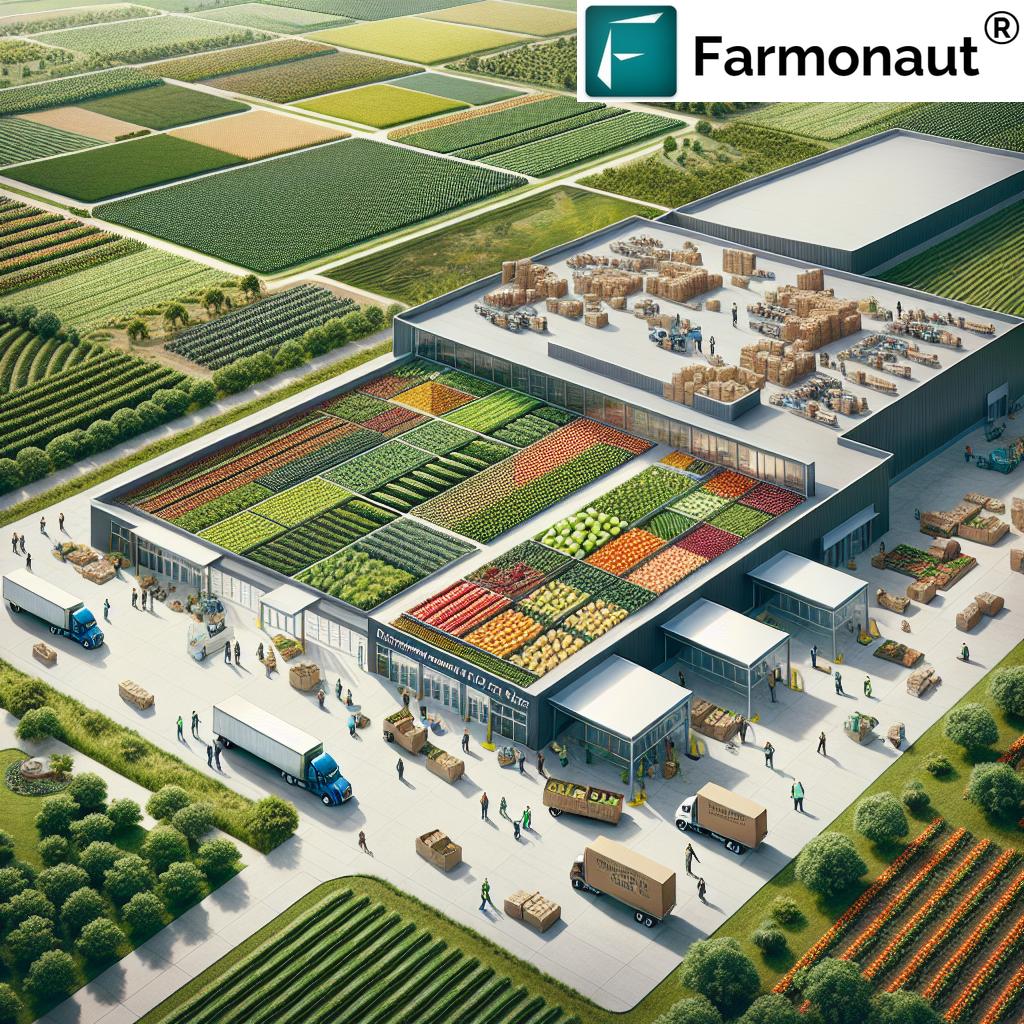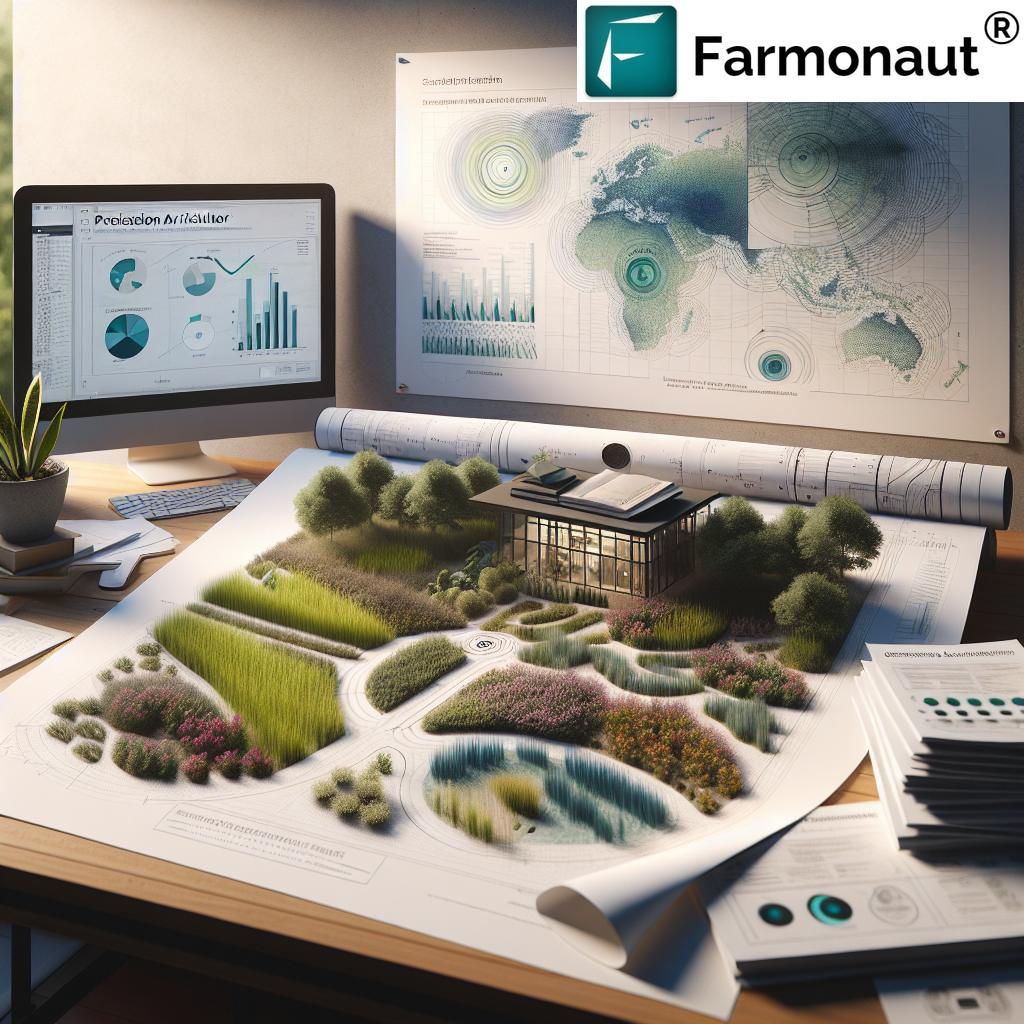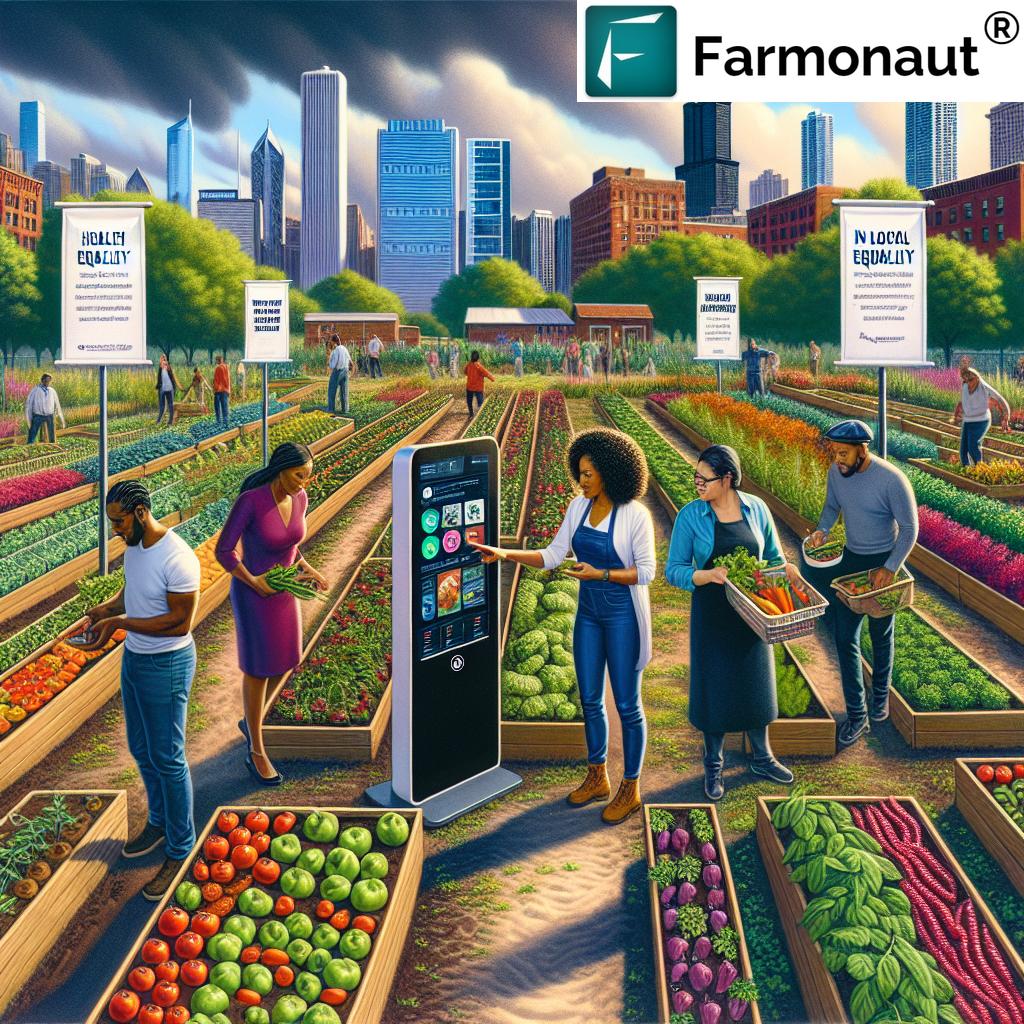Revolutionizing Illinois Farms: How Drones and AI Are Transforming Modern Agriculture
“AI-powered crop management platforms can analyze up to 10 million data points per day for precision farming.”
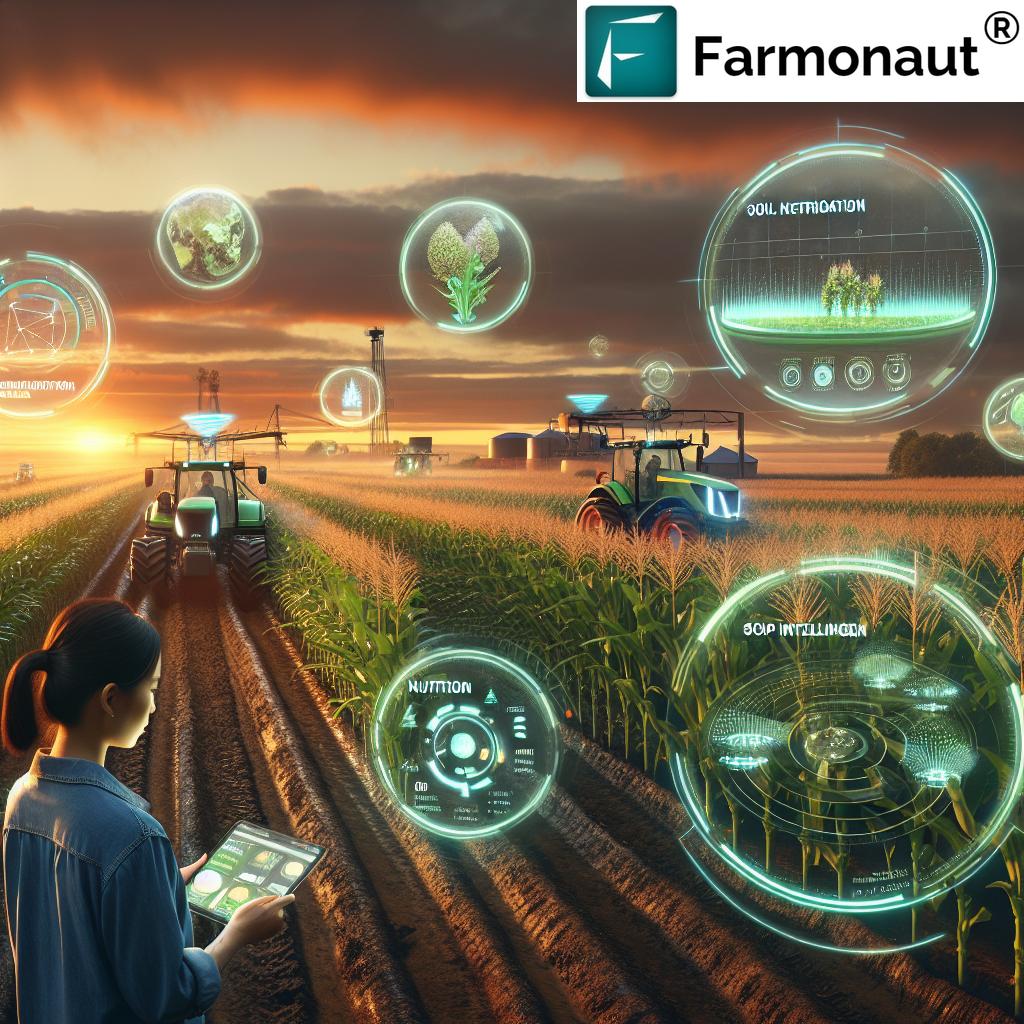
Welcome to the cutting edge of agricultural innovation in Illinois! We’re excited to dive into the transformative world of modern farming, where drones buzz overhead and artificial intelligence (AI) works tirelessly to optimize crop yields. As we explore the latest agricultural technology innovations reshaping the Prairie State’s farms, we’ll uncover how these advancements are not just changing the landscape but revolutionizing the very essence of agriculture.
The Drone Revolution in Illinois Agriculture
One of the most visible changes in Illinois farms is the increasing presence of drones. These unmanned aerial vehicles have become indispensable tools for modern farmers, offering a bird’s-eye view of vast agricultural lands and providing invaluable data for decision-making.
- Precision Mapping: Drones equipped with high-resolution cameras and sensors create detailed maps of fields, highlighting variations in soil composition, moisture levels, and crop health.
- Crop Monitoring: Regular drone flights allow farmers to track crop growth, identify pest infestations, and detect diseases early, enabling timely interventions.
- Efficient Resource Management: By pinpointing areas that need attention, drones help optimize the use of water, fertilizers, and pesticides, reducing waste and environmental impact.
The integration of drone applications in farming has led to a significant boost in efficiency and sustainability across Illinois’s agricultural sector. Farmers can now make data-driven decisions with unprecedented accuracy, leading to improved crop yields and reduced resource consumption.
AI: The Brain Behind Smart Farming
While drones serve as the eyes in the sky, AI acts as the brain processing and analyzing the vast amounts of data collected. Crop management AI systems are revolutionizing how farmers approach their daily operations:
- Predictive Analytics: AI algorithms analyze historical data, weather patterns, and current field conditions to forecast crop yields and potential issues.
- Automated Decision Support: AI-powered platforms provide farmers with actionable insights, suggesting optimal times for planting, irrigation, and harvesting.
- Pest and Disease Management: Machine learning models can identify early signs of crop diseases or pest infestations, allowing for targeted and timely treatments.
The synergy between drones and AI is creating a new paradigm in agriculture, one where precision and efficiency are at the forefront of farming practices.
Biotechnology: Enhancing Crop Resilience and Yield
Biotechnology in agriculture is another frontier where Illinois farms are seeing significant advancements. Genetic engineering and molecular breeding techniques are developing crops that are more resistant to pests, diseases, and environmental stresses.
- Drought-Resistant Crops: Biotech innovations are creating corn and soybean varieties that can thrive with less water, a crucial development in the face of climate change.
- Nutrient-Enhanced Varieties: Scientists are developing crops with improved nutritional profiles, contributing to both food security and public health.
- Pest-Resistant Plants: Genetically modified crops that produce natural pesticides reduce the need for chemical sprays, promoting more sustainable farming practices.
These advancements in biotechnology are not only increasing crop yields but also making agriculture more resilient and environmentally friendly.
Digital Farming Solutions: The Future is Now
Digital farming solutions are transforming Illinois farms into high-tech operations. From smart sensors to mobile apps, farmers now have an array of tools at their fingertips:
- IoT Sensors: Connected devices monitor soil moisture, temperature, and nutrient levels in real-time, enabling precise resource management.
- Farm Management Software: Integrated platforms help farmers track everything from equipment maintenance to crop rotations and financial planning.
- Satellite Imagery: Regular satellite scans provide broad-scale data on crop health and field conditions, complementing drone-gathered information.
These digital tools are essential components of modern farming practices, allowing for data-driven decision-making and improved operational efficiency.
“Sustainable aviation fuel from agricultural waste can reduce carbon emissions by up to 80% compared to conventional jet fuel.”
Sustainable Aviation Fuel: A New Frontier for Agricultural Byproducts
In an exciting development, Illinois farmers are finding new value in agricultural waste through the production of sustainable aviation fuel from plant waste. This innovative approach not only provides a new revenue stream for farmers but also contributes to reducing the carbon footprint of the aviation industry.
- Corn Stover Utilization: Leftover corn stalks and leaves are being converted into biofuel, turning what was once waste into a valuable resource.
- Soybean Oil Conversion: Illinois’s abundant soybean crops are finding a new purpose in sustainable fuel production, enhancing the crop’s economic value.
- Circular Economy: This process creates a more sustainable agricultural ecosystem, where every part of the crop is utilized efficiently.
The development of sustainable aviation fuel showcases how agricultural innovation can have far-reaching impacts beyond the farm, contributing to global sustainability efforts.
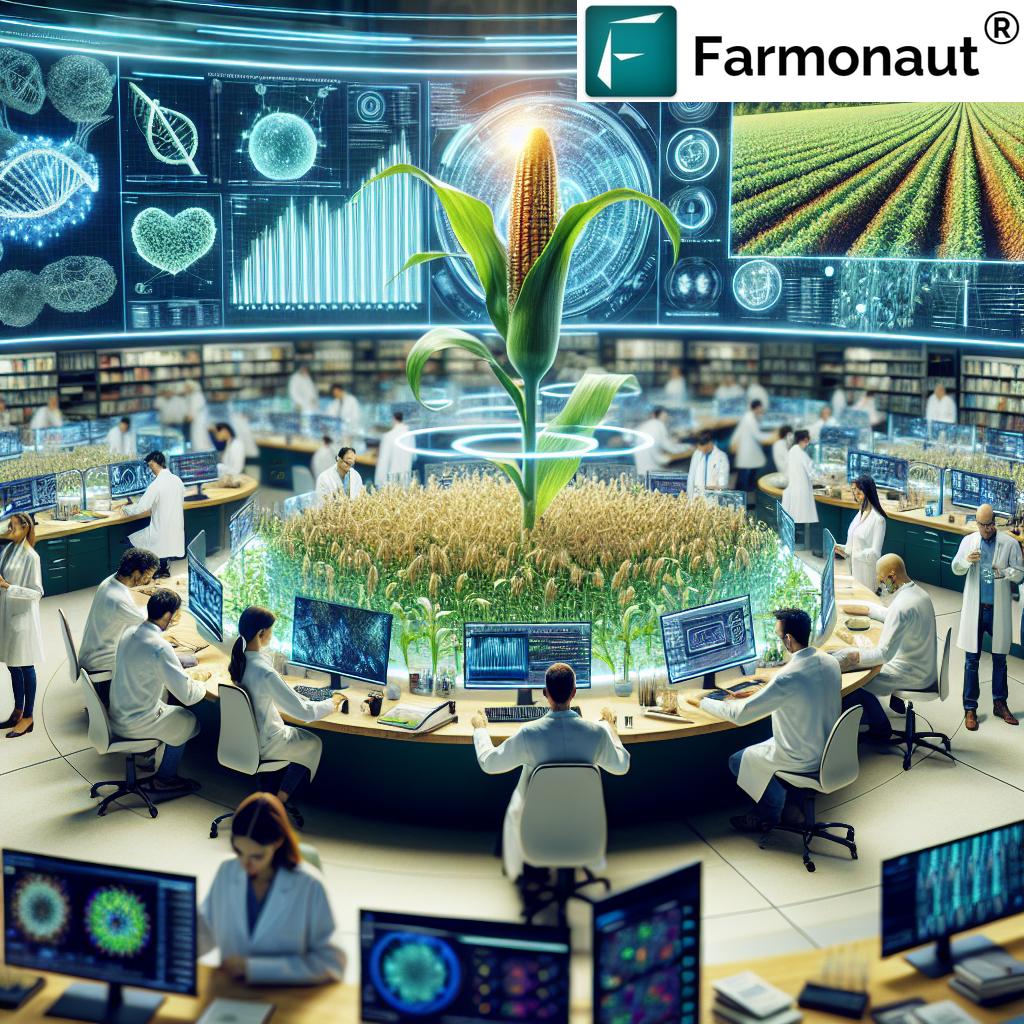
Farm Equipment Safety: Prioritizing Farmer Well-being
As farms become more technologically advanced, farm equipment safety remains a top priority. Modern agricultural machinery is being equipped with advanced safety features:
- Automated Emergency Braking: Tractors and harvesters with sensors that detect obstacles and automatically apply brakes to prevent accidents.
- Roll-Over Protection Systems (ROPS): Enhanced structural safety features that protect operators in case of equipment tipping.
- GPS-Guided Machinery: Precision steering systems that reduce operator fatigue and improve safety in low-visibility conditions.
These safety innovations are crucial in protecting Illinois farmers as they work with increasingly complex and powerful machinery.
Agricultural Trade Policies: Shaping the Future of Farming
Agricultural trade policies play a significant role in shaping the landscape of Illinois farming. Recent developments in trade agreements and regulations are impacting how farmers operate and plan for the future:
- Market Access: New trade agreements are opening up additional markets for Illinois agricultural products, particularly in Asia and Europe.
- Tariff Negotiations: Ongoing discussions aim to reduce trade barriers, potentially increasing the competitiveness of Illinois crops in the global market.
- Sustainability Requirements: Emerging trade policies are increasingly incorporating environmental standards, encouraging sustainable farming practices.
Understanding and adapting to these policy changes is crucial for Illinois farmers to remain competitive in the global agricultural market.
Farm Efficiency Tools: Maximizing Productivity
The quest for increased productivity has led to the development of innovative farm efficiency tools. These technologies are helping Illinois farmers do more with less:
- Automated Irrigation Systems: Smart water management solutions that adjust irrigation based on real-time soil moisture data and weather forecasts.
- Robotic Harvesting: Autonomous machines that can harvest delicate crops like fruits and vegetables with precision and efficiency.
- AI-Powered Crop Rotation Planning: Software that analyzes soil health, market trends, and historical yield data to suggest optimal crop rotation strategies.
These efficiency tools are not just improving productivity; they’re also contributing to more sustainable farming practices by optimizing resource use.
Modern Farming Practices: A Holistic Approach
Modern farming practices in Illinois are embracing a holistic approach that combines technology with ecological awareness:
- Precision Agriculture: Using GPS-guided equipment and variable-rate technology to apply inputs like seeds, fertilizers, and pesticides with pinpoint accuracy.
- Conservation Tillage: Minimizing soil disturbance to improve soil health, reduce erosion, and increase carbon sequestration.
- Integrated Pest Management (IPM): Employing a combination of biological, cultural, and chemical methods to control pests while minimizing environmental impact.
These practices are not only improving farm productivity but also enhancing the long-term sustainability of Illinois agriculture.
The Role of Farmonaut in Illinois Agriculture
At Farmonaut, we’re proud to be at the forefront of agricultural innovation, offering cutting-edge digital agriculture services that align perfectly with the needs of Illinois farmers. Our satellite-based farm management solutions provide real-time insights into crop health, soil moisture, and weather patterns, enabling data-driven decision-making.
Through our platform, farmers can access:
- Satellite-Based Crop Monitoring: Regular updates on crop health and development, allowing for timely interventions.
- AI-Powered Advisory: Personalized recommendations for crop management based on real-time data and historical trends.
- Resource Optimization Tools: Features that help manage water, fertilizers, and other inputs more efficiently.
Our commitment to making precision agriculture accessible and affordable aligns perfectly with the innovative spirit of Illinois farming.
Explore Farmonaut’s solutions:
For developers interested in integrating our technology, check out our API and API Developer Docs.
Technological Advancements in Illinois Agriculture
| Technology | Application | Benefits | Adoption Rate |
|---|---|---|---|
| Drones | Crop monitoring, field mapping | Improved precision, early issue detection | 45% |
| AI Crop Management | Predictive analytics, automated decision support | Enhanced yield, resource optimization | 30% |
| Biotechnology | Developing resilient crop varieties | Increased yield, pest resistance | 70% |
| Sustainable Aviation Fuel | Converting agricultural waste to biofuel | New revenue stream, reduced emissions | 10% |
| IoT Sensors | Real-time field monitoring | Precise resource management | 40% |
The Future of Illinois Agriculture
As we look to the future, the integration of these technologies and practices promises to make Illinois agriculture more productive, sustainable, and resilient. The convergence of drones, AI, biotechnology, and digital farming solutions is creating a new agricultural paradigm that addresses both economic and environmental challenges.
Key trends to watch include:
- Autonomous Farm Equipment: Self-driving tractors and harvesters that can operate 24/7, maximizing efficiency.
- Vertical Farming: Urban agriculture solutions that could complement traditional farming, especially for fresh produce.
- Blockchain in Agriculture: Enhancing traceability and transparency in the food supply chain.
- Climate-Resilient Crop Development: Continued advancements in creating crops that can thrive in changing climate conditions.
These innovations will not only shape the future of Illinois farms but also contribute to global food security and sustainable agricultural practices.
Conclusion: Embracing Innovation for a Sustainable Future
The transformation of Illinois farms through drones, AI, and other cutting-edge technologies is more than just a technological revolution—it’s a path towards a more sustainable and productive agricultural future. By embracing these innovations, Illinois farmers are not only improving their yields and efficiency but also contributing to global efforts in sustainable food production and environmental stewardship.
As we continue to navigate the challenges of climate change, population growth, and resource scarcity, the innovations happening on Illinois farms today will play a crucial role in shaping the future of agriculture worldwide. The integration of digital technologies, biotechnology, and sustainable practices is creating a new era of smart farming that promises to feed the world while preserving our planet for future generations.
At Farmonaut, we’re excited to be part of this agricultural revolution, providing tools and insights that empower farmers to make data-driven decisions and optimize their operations. Together, we’re cultivating a future where technology and tradition work hand in hand to create a more sustainable and prosperous agricultural landscape.
FAQs
- How are drones changing farming in Illinois?
Drones are revolutionizing farming by providing aerial imagery for crop monitoring, enabling precision agriculture, and helping farmers make data-driven decisions about irrigation, pest control, and harvesting. - What role does AI play in modern agriculture?
AI in agriculture analyzes vast amounts of data to provide insights on crop health, predict yields, optimize resource use, and automate decision-making processes for more efficient farming operations. - How is biotechnology improving crops in Illinois?
Biotechnology is developing crops that are more resistant to pests, diseases, and environmental stresses, as well as enhancing nutritional profiles and increasing yields. - What are the benefits of sustainable aviation fuel from agricultural waste?
Sustainable aviation fuel from agricultural waste reduces carbon emissions, provides a new revenue stream for farmers, and helps create a more circular economy in agriculture. - How can farmers access Farmonaut’s digital agriculture services?
Farmers can access Farmonaut’s services through our web application, Android app, or iOS app. We also offer API access for developers looking to integrate our technology into their systems.






